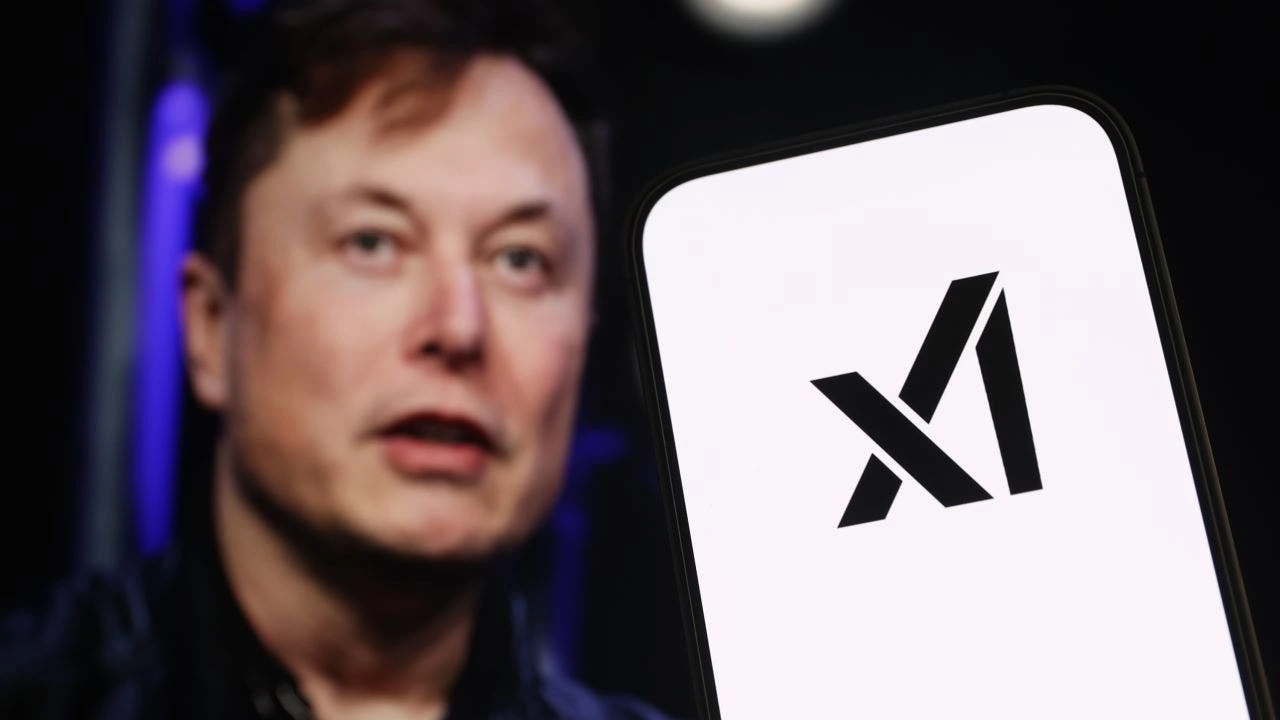Elon Musk’s artificial intelligence startup, xAI, has reportedly raised $15 billion in new funding, according to a CNBC report citing sources familiar with the matter.
The infusion, which allegedly boosts the company’s valuation to $200 billion, underscores the accelerating race for capital in the AI sector.
However, Musk quickly disputed the report. In a post on X, his social media platform, the billionaire entrepreneur called the news “False,” without providing further clarification.
The conflicting statements have stirred confusion within the tech and investment communities, highlighting the secrecy and rapid pace surrounding AI funding as firms compete to secure computing power and infrastructure.
CNBC reported that xAI’s latest fundraising adds another $5 billion to the $10 billion round it covered in September.
Sources told the outlet that much of the capital will be used to purchase graphics processing units (GPUs), essential for training large language models the core technology behind chatbots and generative AI systems.
The reported funding would place xAI among the world’s most valuable private AI firms, trailing OpenAI and Anthropic.
In recent months, the sector has seen unprecedented investment inflows as developers rush to meet demand for advanced AI models.
In September, Anthropic raised $13 billion in a round that tripled its valuation from earlier in the year. A month later, OpenAI completed a $6.6 billion share sale at a $500 billion valuation, according to Reuters.
The ChatGPT developer is reportedly preparing for an initial public offering that could value it near $1 trillion.
Analysts say the confusion over xAI’s financing reflects both the intense investor appetite for AI startups and Musk’s unpredictable communication style.
“xAI operates in a climate where funding announcements can sway markets and influence competitive dynamics,” said Clara Jensen, a senior analyst at FutureSight Research.
“If the funding report is accurate, it signals investor confidence in Musk’s long term AI vision. If not, it raises questions about transparency in this high stakes space.”
Tech policy experts also note that Musk’s AI ambitions have increasingly overlapped with his other ventures, including Tesla and X. That entanglement, they argue, could attract regulatory scrutiny.
“Tesla shareholders have already expressed concern about resource sharing between Musk’s companies,” said Jordan Lim, an analyst with the Tech Governance Institute. “When AI, energy, and automotive interests intersect, governance becomes critical.”
According to PitchBook data, global AI funding surpassed $70 billion in 2024, up nearly 45 percent from the previous year. Investors have focused heavily on firms that design foundational models or build the computing infrastructure needed to train them.
If confirmed, xAI’s $200 billion valuation would make it the third most valuable private AI company globally, behind OpenAI and Anthropic. By comparison, Google backed Anthropic’s valuation hovers around $150 billion, while OpenAI’s sits at half a trillion.
Musk has positioned xAI as a competitor to OpenAI, which he co-founded and later left over strategic disagreements. His company’s flagship product, Grok a conversational AI integrated into X aims to offer a more irreverent, personality driven experience than ChatGPT.
In Memphis, where xAI operates a growing network of data centers, local concerns have mounted over environmental impacts. The facilities reportedly rely on natural gas burning turbines for energy, which researchers say worsen local air quality.
“Memphis already struggles with ozone and particulate matter pollution,” said Dr. Lila Edmond, an environmental scientist at the University of Memphis.
If these turbines continue to expand without cleaner alternatives, it could reverse years of progress on emissions. Some residents near the sites echoed those worries.
We just want transparency, said Michael Torres, a local business owner. “If these AI centers are helping the economy, great but not at the expense of public health.”
At the same time, others credit the expansion with bringing jobs and investment to the area. “Tech companies like xAI are putting Memphis on the map,” said Alicia Brown, who works for a regional logistics firm.
“We’ve seen new construction, contracts, and opportunities that didn’t exist before.” Despite the controversy, Musk has continued to integrate xAI’s products into his broader business ecosystem.
Newer Tesla vehicles feature Grok in their infotainment systems, while xAI has reportedly purchased millions of dollars’ worth of Tesla’s battery energy storage systems for its data centers.
At Tesla’s annual shareholder meeting last week, investors approved a CEO compensation plan that could earn Musk up to $1 trillion in shares over the next decade. Another proposal to allow Tesla to invest directly in xAI failed to secure enough votes.
“Tesla’s leadership is considering next steps on the issue,” Brandon Ehrhart, the automaker’s general counsel, said during the meeting.
Industry observers expect Musk to continue seeking synergies between his companies, even as regulatory and environmental challenges grow.
“xAI represents Musk’s next frontier merging AI, energy, and mobility into a single ecosystem,” said Jensen of FutureSight Research. “But managing public trust may prove harder than raising capital.”
Whether xAI truly secured the $15 billion funding or not, the episode underscores the opacity of the AI industry’s financial underpinnings and the heightened scrutiny facing Musk’s ventures.
As the race for artificial intelligence dominance accelerates, companies like xAI are walking a tightrope between innovation and accountability a balance that will likely define the next era of global tech competition.
